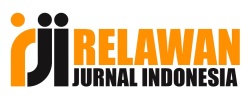The Impact of Online Education on the Early Children's Learning Outcomes
DOI:
https://doi.org/10.35719/gns.v3i1.71Keywords:
online learning, early children's learning outcomesAbstract
This research is motivated by the existence of an online learning process in early childhood so that it impacts on children's learning outcomes. This study aims to determine the effect of online learning on early childhood learning outcomes at Raudhatul Athfal Islam Bakti 99 Nairatul Jannah Padang. This study uses quantitative and qualitative research techniques, namely the mixed method. The subjects in this study amounted to five people. Data collection techniques are in the form of interviews and questionnaires. This study uses quantitative data analysis techniques using level categorization, while qualitative data analysis uses coding approaches. And the outcomes of this study meant that there is an effect of online learning on early childhood learning outcomes. Quantitative and qualitative data supports these results. Quantitative data shows the impact of online education on learning outcomes in the moderate category. In contrast, while the results from qualitative data show that online learning partially affects children's learning outcomes so that learning outcomes tend to be less stable.
References
Andini, Yuli Tri, and Melia Dwi Widayanti. “Pelaksanaan Pembelajaran Daring Pada Masa Pandemi COVID-19 Di TK BIAS Yogyakarta.” Jurnal Tarbiyatuna?: Kajian Pendidikan Islam 4, no. 2 (2020): 206–16. https://doi.org/https://doi.org/10.29062/tarbiyatuna.v4i2.424.
Haryono, Cosmas Gatot. Ragam Metode Penelitian Kualitatif Komunikasi. Edited by Dewi Esti Restiani. Sukabumi: CV Jejak (Jejak Publisher), 2020.
Hutami, Meyda Setyana, and Aninditya Sri Nugraheni. “Metode Pembelajaran Melalui Whatsapp Group Sebagai Antisipasi Penyebaran Covid-19 Pada AUD Di TK ABA Kleco Kotagede.” PAUDIA?: Jurnal Penelitian Dalam Bidang Pendidikan Anak Usia Dini 9, no. 1 (2020): 126–30. https://doi.org/https://doi.org/10.26877/paudia.v9i1.6107.
Martono, Nanang. Metode Penelitian Kuantitatif: Analisis Isi Dan Analisis Data Sekunder. Edited by Santi Pratiwi Tri Utami. 5th ed. Jakarta: RajaGrafindo Persada, 2016.
Pebriana, Putri Hana. “Analisis Penggunaan Gadget Terhadap Kemampuan Interaksi Sosial Pada Anak Usia Dini.” Jurnal Obsesi?: Jurnal Pendidikan Anak Usia Dini 1, no. 1 (2017). https://doi.org/10.31004/obsesi.v1i1.26.
Ramanta, Deka, and Febi Dwi Widayanti. “Pembelajaran Daring Di Sekolah Menengah Kejuruan Putra Indonesia Malang Pada Masa Pandemi COVID-19.” In Prosiding Seminar Bimbingan Dan Konseling: Mengukuhkan Eksitensi Peran BK Pasca Pandemi Covid-19 Di Berbagai Setting Pendidikan, edited by Blasius Boli Lasan, Edy Legowo, Lutfi Fauzan, Indriyana Rachmawati, Riskiyana Prihatiningsih, Farid Imam Kholidin, Muwakhidah, Novi Rosita Rahmawati, and Septinda Rima Dewanti, 61–67. Malang: Universitas Negeri Malang, 2020. http://conference.um.ac.id/index.php/bk2/article/view/81.
Rukajat, Ajat. Pendekatan Penelitian Kualitatif (Qualitative Research Approach). 1st ed. Yogyakarta: Deepublish, 2018.
Solekah, Maratus, Anik Lestariningrum, and Linda Dwiyanti. “Implementasi Pembelajaran Nilai Agama Dan Moral Pada Anak Usia 4-5 Tahun Selama Belajar Dari Rumah.” Journal Ashil 1, no. 1 (April 2021): 67–79. https://doi.org/https://doi.org/10.33367/piaud.v1i1.1621.
Wulandari, Hesti, and Edi Purwanta. “Pencapaian Perkembangan Anak Usia Dini Di TK Selama Pembelajaran Daring Saat Pandemi Covid-19.” Jurnal Obsesi: Jurnal Pendidikan Anak Usia Dini 5, no. 1 (2021): 452–62. https://doi.org/10.31004/obsesi.v5i1.626.
Yusrizal. Tanya Jawab Seputar Pengukuran, Penilaian, Dan Evaluasi Pendidikan. 1st ed. Banda Aceh: Syiah Kuala University Press, 2016.
Downloads
Published
How to Cite
Issue
Section
License
Copyright (c) 2022 Wahyuni Wahyuni, Prima Aulia

This work is licensed under a Creative Commons Attribution-ShareAlike 4.0 International License.
All articles published in GENIUS: Indonesian Journal of Early Childhood Education are licensed under a Creative Commons Attribution-ShareAlike 4.0 International License (CC BY-SA 4.0).
This license allows others to share (copy and redistribute) and adapt (remix, transform, and build upon) the material for any purpose, even commercially, as long as appropriate credit is given to the original author(s) and the source, and any derivative works are distributed under the same license as the original.












